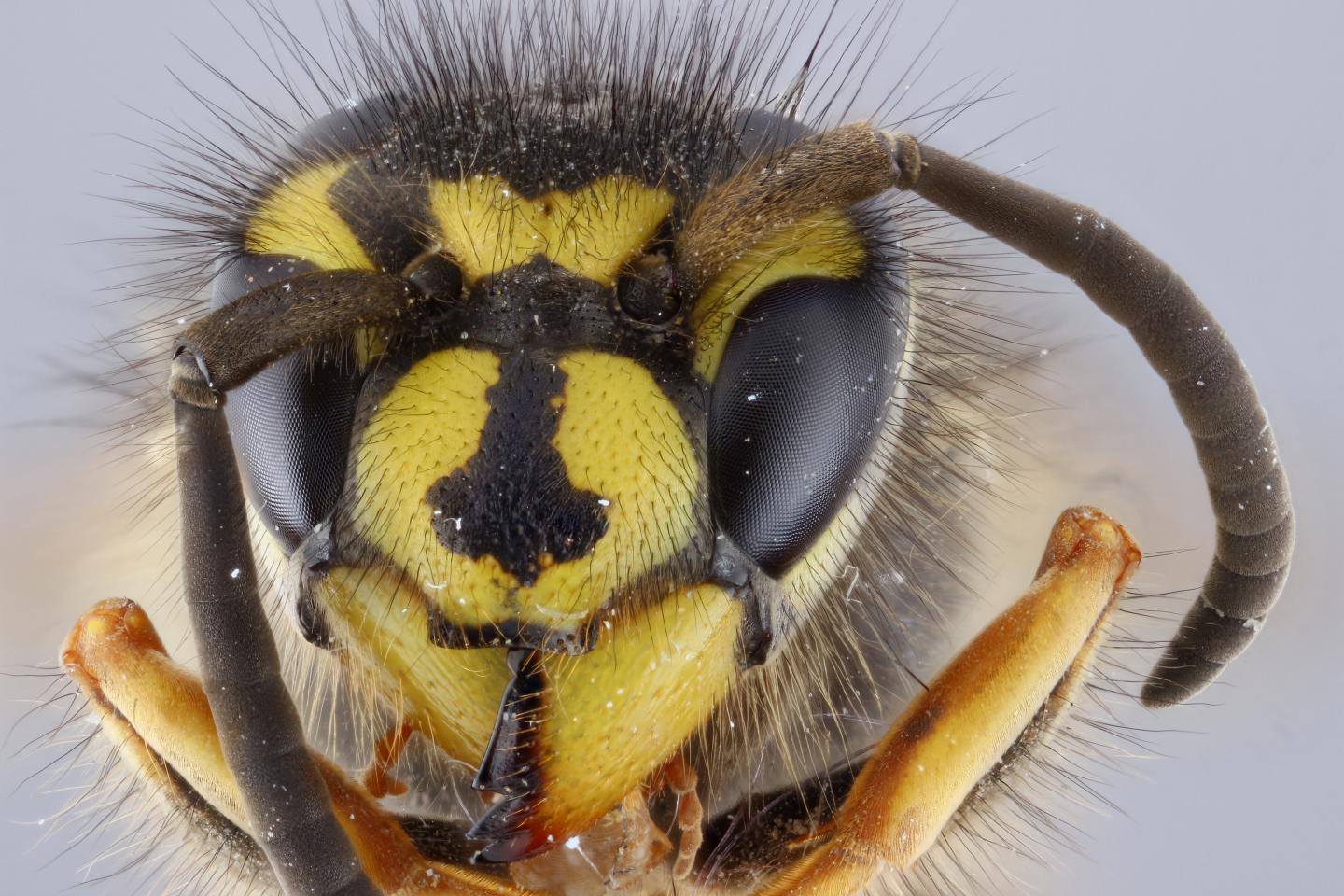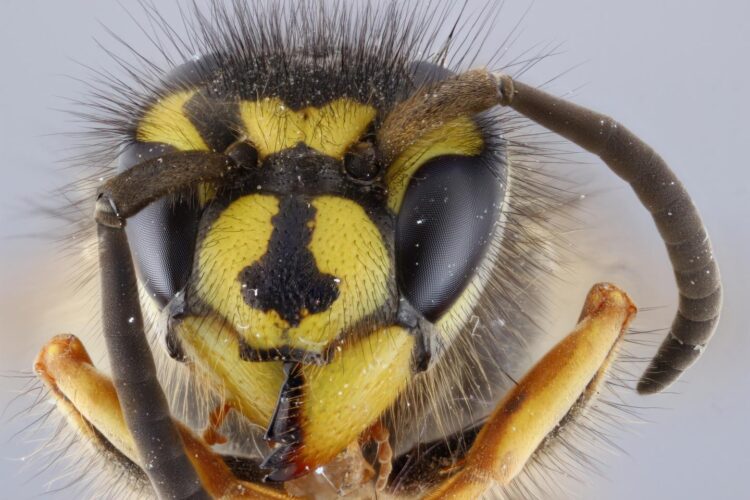Contributors will enable the EU to take action to plug in the essential scientific knowledge to address insect declines

Credit: Royal Belgian Institute of Natural Sciences
The ‘Red List of Taxonomists’ initiative, funded by the European Union, launches its registration portal, where professionals and citizen scientists are called to register on. The purpose is to build a database of European taxonomy experts in the field of entomology, the biological discipline dedicated to insects. The analysis of these data will elucidate the trends in available expertise, thereby forming the basis of key recommendations for policy makers to further allocate necessary efforts and funds to support taxonomists’ work and contribute to protecting European biodiversity and beyond.
Globally, insect populations have been catastrophically plummeting over the last decades. According to the first major Europe-wide survey of honeybee colonies, conducted in 2013, some European countries lost as many as one-third of their colonies every winter. On the other hand, estimates state, the European agriculture industry alone ‘owes’ at least €22 billion per year to honey bees and wild bees, in addition to many species from other insect orders, as together they ensure pollination for over 80% of crops and wild plants in Europe.
The health of European pollinators on species and population level and other insects essential in our ecosystems strongly relies on our ability to rapidly turn the growing awareness about these worrying trends into swift, decisive actions. These decisions are crucial to mitigate the negative impacts of these alarming trends in human activities, mainly industrial agriculture. Taxonomists – the people who can identify, discover and monitor insect species – have a decisive role to play.
Often specialised in specific insect groups, they can investigate the diversity and abundance of insects. To a great concern, the numbers of trained insect taxonomists seem also to be fast declining. There is the real danger of losing numerous species before we get the chance to even learn about their existence!
On a more positive note, while species extinction is an irreversible event, certain taxonomic expertise can be nourished and ‘brought back to life’ if only we have the data and analyses to bring to the attention of the relevant education institutions, governments and policy-makers, so that the necessary resources are allocated to education, training, career support and recognition.
This is how the ‘Red List of Taxonomists’ project, an initiative by the organisation uniting the most important and largest European natural science collections (CETAF), the world’s authority on assessing the risk of extinction of organisms: the International Union for Conservation of Nature (IUCN) and the scientific publisher with a long history in the biodiversity and ecology fields: Pensoft, and funded by the European Commission, comes into play. Launched earlier this year, the ‘Red List of Taxonomists’ aims to compile the very first inventory of taxonomic expertise for any group of organisms, understandably choosing the class of insects.
Bringing together scientists, research institutions and learned societies from across Europe, the project will compare the trends and extract recommendations to overcome the risks, while preserving and further evolving the expert capacity of this scientific community.
As partners of the project, CETAF and IUCN are mobilising experts from their respective networks to populate the ‘Red List of Taxonomists’ database. In parallel, Pensoft is extracting further data of authors, reviewers and editors from taxonomic publications across its portfolio of academic journals and books, in addition to major relevant databases working with scholarly literature.
To reach experts, including professionals not necessarily affiliated with partnering institutions, as well as citizen scientists, the team is now calling for European taxonomists to register via the newly launched ‘Red List of Taxonomists’ portal and provide their data by filling a short survey. Their data will not be publicly available, but it will be used for in-depth analyses and reports in the concluding stage of the project, scheduled for early 2022. The collection of the data is in full compliance with GDPR requirements.
Insect taxonomists, both professional and citizen scientists, are welcome to register on the Red List of Taxonomists portal at: red-list-taxonomists.eu and further disseminate the registration portal to fellow taxonomists.
###
Follow and join the conversation on Twitter using the #RedListTaxonomists hashtag.
Additional information:
CETAF is the European organization of Natural History Museums, Botanic Gardens and Research Centers with their associated natural science collections comprising 71 of the largest taxonomic institutions from 22 European countries (18 EU, 1 EEA and 3 non-EU), gathering expertise of more than 5,000 researchers. Their collections contain a wide range of specimens including animals, plants, fungi and rocks, and genetic resources which are used for scientific research and exhibitions. CETAF aims to promote training, research collaborations and understanding in taxonomy and systematic biology as well as to facilitate access to our natural heritage by sharing the information derived from the collections. Follow CETAF on Twitter, Facebook and LinkedIn.
IUCN (the International Union for Conservation of Nature) is a membership Union composed of both government and civil society organisations. It harnesses the experience, resources and reach of its more than 1,400 Member organisations and the input of more than 17,000 experts. This diversity and vast expertise makes IUCN the global authority on the status of the natural world and the measures needed to safeguard it. Follow IUCN on Twitter, Facebook and LinkedIn.
Pensoft is an independent academic publishing company and technology provider, well known worldwide for its novel cutting-edge publishing tools, workflows and methods for text and data publishing of journals, books and conference materials. Through its Research and Technical Development department, the company is involved in various research and technology projects. Founded in 1992 “by scientists, for scientists” and initially focusing on book publishing, Pensoft is now a leading publisher of innovative open access journals in taxonomy and biodiversity science. Follow Pensoft on Twitter, Facebook and LinkedIn.
Contact:
Iva Kostadinova, Pensoft
Email: [email protected]
Ana Casino, CETAF
Email: [email protected]
Sarine.Barsoumian, IUCN
Email: [email protected], IUCN
Media Contact
Iva Kostadinova, Pensoft
[email protected]





